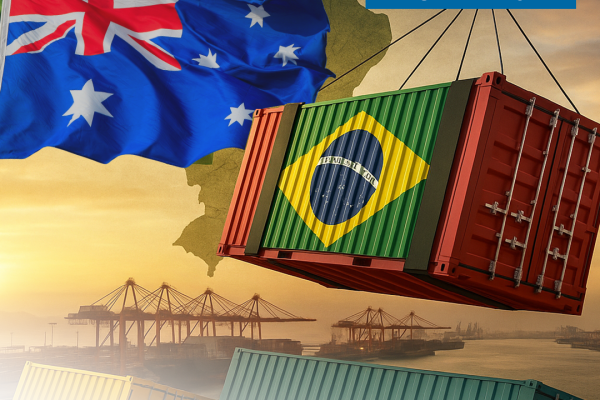With the changing face of world trade we find there is renewed interest in products from Brazil. If you are new to this market, or even already have a relationship with suppliers there, Colless Young provides you with all the services, tools, and information you need.
As is the case with all overseas dealings, it is important to engage the services of an experienced broker like Colless Young, and this is especially true in Brazil where the bureaucracy is very strict on adhering to regulations and having the correct paperwork. Whether you buy as FCL or LCL seafreight shipments, or have more urgent goods to move by airfreight, we have you covered.
Although Australia competes in some ways with Brazil, especially with the recent US tariffs on Brazilian beef, overall, we have a good relationship with this rising Latin American power – the world’s fifth-largest country by area, covering half the South American continent – that is home to over 212 million people.
Brazil is the 9th largest global economy and has significant resource wealth, being the world’s largest producer of coffee. It is Australia’s 27th largest trading partner. Major Australian imports from Brazil include civil engineering equipment and parts, coffee, medicine, and pulp and wastepaper. As a snapshot, in May 2025, Australia exported AUD 113M and imported AUD 153M from Brazil.
Brazil has several significant seaports, including Santos, Rio de Janeiro, Paranaguá, Rio Grande, and Itaqui. The Port of Santos is not only Brazil’s largest port, but also one of the major trading hubs in Latin America. Located in the state of São Paulo, it handles a wide range of cargo, including coffee, sugar, and automobile parts. The next busiest is Rio de Janeiro – known for its strategic location, then Rio Grande – the southernmost sea port.
As for airports, São Paulo/Guarulhos International Airport (GRU) is the primary gateway in Brazil, serving both international and domestic airlines. Other major hubs are Rio de Janeiro/Galeão International (GIG) as well as Brasília International Airport (BSB) in the country’s capital.
Currently, there is no formal free trade agreement (FTA) between Australia and Brazil. However, both countries are actively engaged in dialogue and cooperation to strengthen trade and investment ties. They participate in the MERCOSUL-CER dialogue, which aims to promote trade and investment among member countries. Australia and Brazil also have memorandums of understanding (MoU) on work and holiday visas, research cooperation, and agricultural science.
Australia and Brazil cooperate multilaterally in numerous forums, including the United Nations and its organisations, the G20 (which Brazil hosted in 2024), the World Trade Organization (WTO) – including through the Cairns Group of agricultural fair-trading countries, the International Atomic Energy Agency (IAEA) and as Parties to the Antarctic Treaty. Brazil will host UNFCCC COP 30 in November 2025.
We work closely with our reliable network of agents around the Americas and we are aware that there are certain red tape hurdles that need to be negotiated when trading with Brazil. We are advised that to import or export goods with Brazil, a RADAR license is needed by the Brazilian trading company. RADAR is an acronym for the Registro e Rastreamento da Atuação dos Intervenientes Aduaneiros. Our representatives at the point of export in Brazil will guide your supplier through these formalities if needed.
If you are importing from Brazil, or in the process of exploring its potential, talk to us at Colless Young. For answers to all your questions, call Andrew, Tel: +61 7 3890 0800 email enq@collessyoung.com.au

